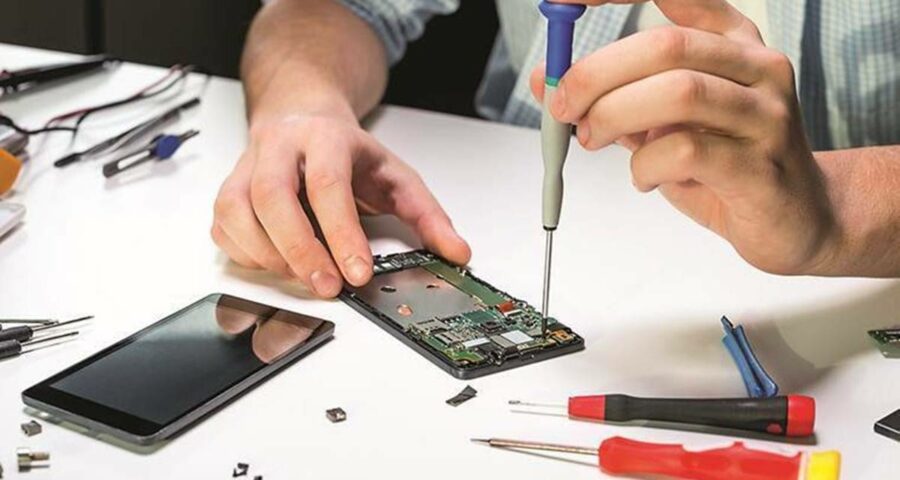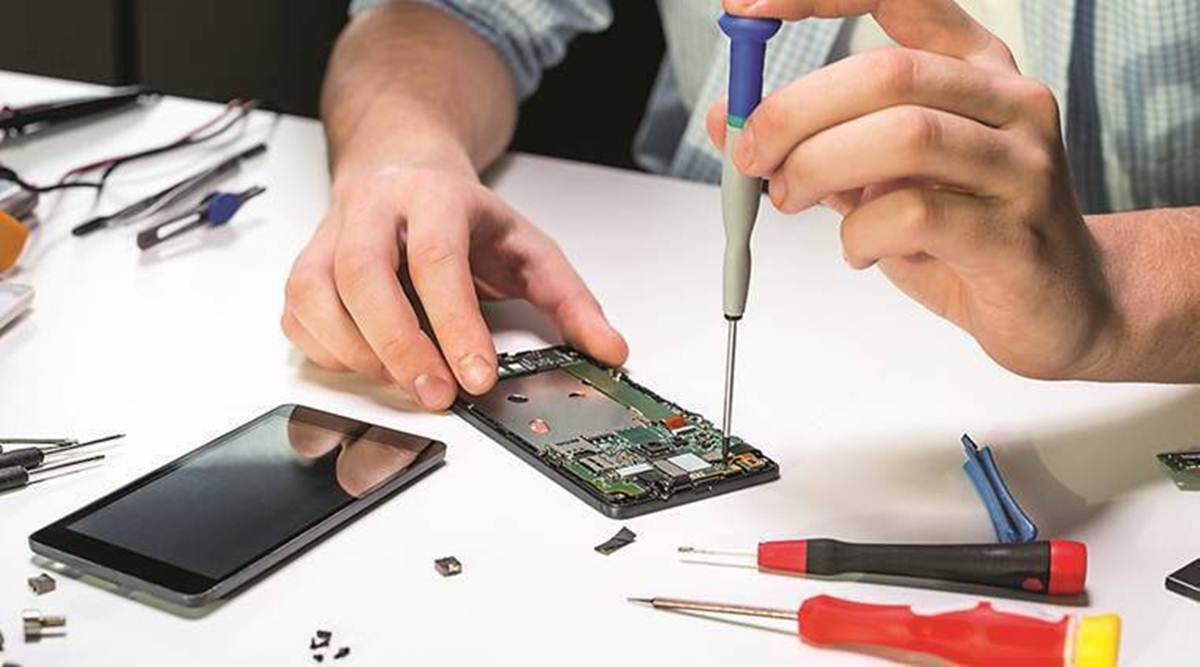The circular economy system, instead of extracting materials, uses a superior methodology of extracting the maximum value of electrical and electronic products by reusing, repairing, recovering, re-manufacturing and regenerating products and materials at the end of each service value.
The Ministry of Electronics and Information Technology (MeitY) has floated a policy paper that intends to replace the current linear system of ‘take-make-dispose’ in the electrical and electronics manufacturing sector with a circular economy one.
The circular economy system, instead of extracting materials, uses a superior methodology of extracting the maximum value of electrical and electronic products by reusing, repairing, recovering, re-manufacturing and regenerating products and materials at the end of each service value.
“It serves as an alternative to current model of highly extractive and resource-intensive linear economy, and aims at maintaining and retaining value of resources, products and materials at their highest by keeping them in use as long as possible,” MeitY said in its policy paper.
As per the proposed action plan, the makers of electrical and electronic products would be incentivised make products with modular designs to reduce fast obsolescence of products and resource. The plan also focuses on mining of raw materials from electrical and electronic waste generated in urban areas so that manufacturers get continued access to such rare earth metals and other costly minerals at low cost.
“Thus, critical materials including rare earth elements needed for manufacturing of EEE (Electronic and Electrical Equipment) products, solar panels, electric vehicles, and many high-techs defence equipment when mined from the e-waste offers great opportunity for securing availability of these resources in future,” MeitY said.
For the action plan, MeitY plans to include incentives for efficient recycling as a part of production linked incentive (PLI) schemes itself, where in companies which take the lead in developing green products are given additional benefits. Such companies, ministry officials said, could also be invited to participate in setting future policies for the sector.
“A mechanism to incentivise the producer through rebate schemes for using recycled products back in the manufacturing process can be implemented. This will add the value proposition to the e-waste value chain and producers will be more inclined towards buyback schemes as it will directly get them the product, with increased value return from raw material extracted cost from the waste,” the ministry noted.
The ministry is also likely to formulate a framework to bring in informal players such as e-waste collectors, aggregators, dealers, retailers, online marketplaces, and auctioning platforms.
“Hybrid approaches to integrate the informal sector into managed supply chains are one means of promoting basic principles of good practice in workplace safety, but robust labour standards and the promotion of decent work principles will be needed to enshrine appropriate monitoring and accountability frameworks,” the ministry said.
In September last year, the IT ministry had floated an expression of interest to invite companies that can assist in recycling and refurbishing of end-of-life lithium-ion batteries as well as printed circuit boards (PCBs). At present, the government does not have any facility for processing, recycling, or refurbishing of end-of-life lithium-ion batteries or printed circuit boards.
India produced 2.6 kg e-waste per capita in 2019, while it has around 312 authorised e-waste recyclers, according to the latest data from Global E-Waste Monitor, released in July 2020.
Source: Read Full Article


